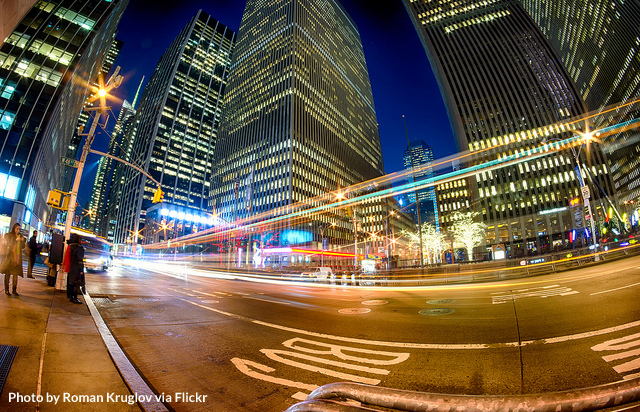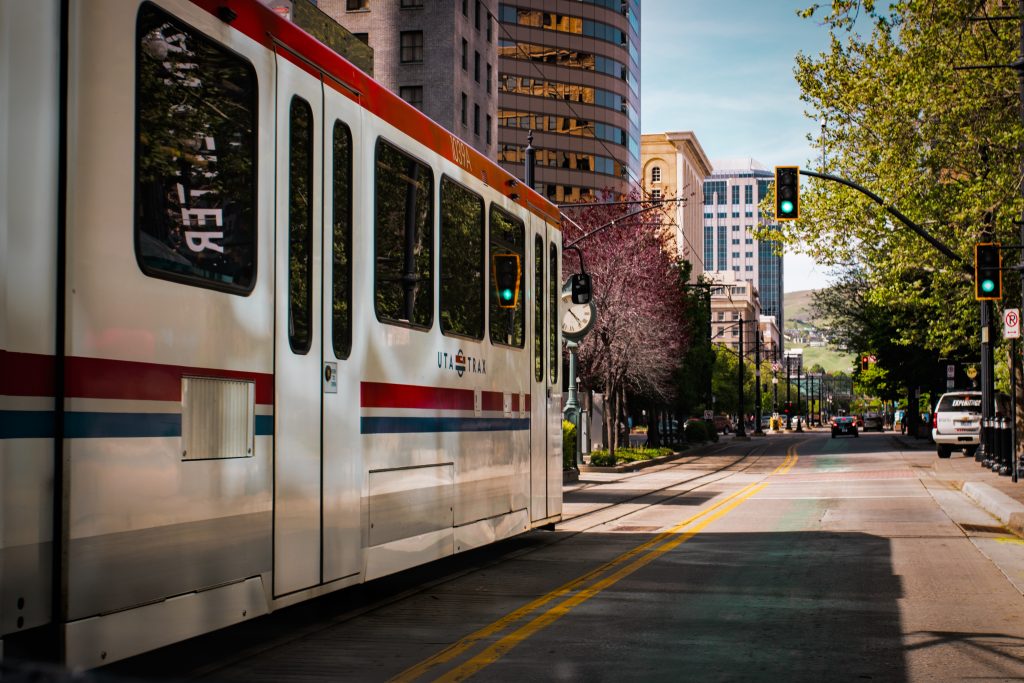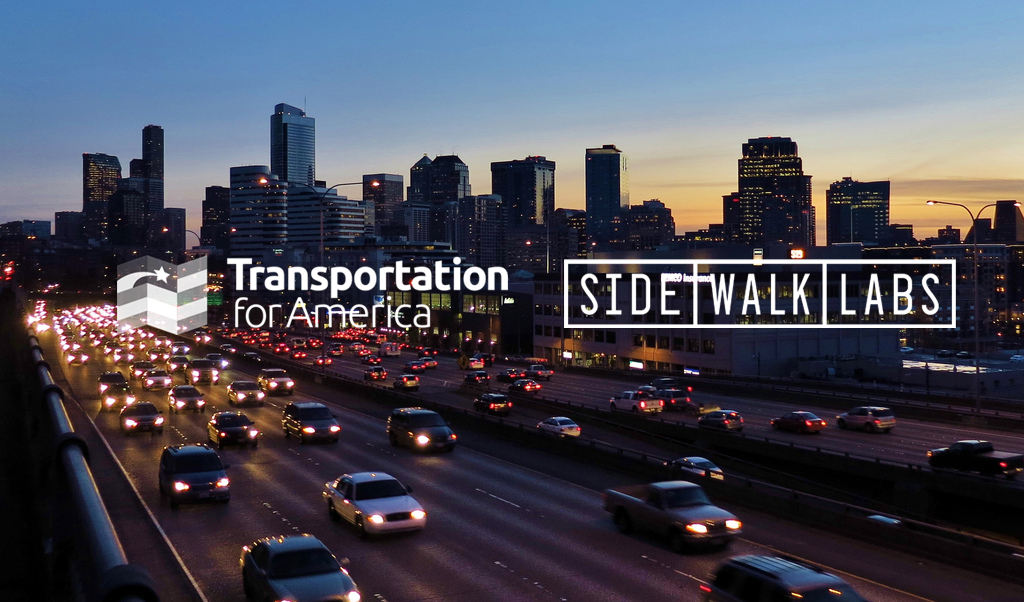
In a new collaborative supported by Sidewalk Labs, cities will work together to create policies, pilot emerging technology & share insights to improve transportation in cities small and large.
Washington, DC; New York, NY – Transportation for America (T4A) and Sidewalk Labs announced today the sixteen members of a new T4A Smart Cities Collaborative to explore how technology can improve urban mobility, creating a tangible new opportunity for the scores of ambitious cities that did not win or weren’t eligible for USDOT’s Smart City Challenge. Over the coming year, the collaborative will bring together these cities to tackle the challenges related to implementing smart city policies and projects — sharing best practices and technical assistance, and piloting new programs.
Nearly 60 cities applied to be a part of the collaborative, which will hold its first meeting in Minneapolis on Nov. 9-10, 2016.
“We’re in the midst of the most transformational shift in urban transportation since the start of the interstate era more than 50 years ago. And just like that era, cities have enormous potential to help or harm their residents with the decisions they make,” said James Corless, Director of T4America. “It’s incredibly encouraging to see this long list of cities proactively shaping the future to ensure that this monumental shift in transportation doesn’t shape their cities without their input and produce a new generation of transportation haves and have-nots.”
“We have spent the past several months speaking directly with cities across the country, and what we’ve heard is mobility is a major issue across the board. Cities know that technology offers ways to improve mobility, but exactly how to realize its potential isn’t obvious,” said Sidewalk Labs Chief Policy Officer Rohit T. Aggarwala. “Cities understand that they need to work together, but the question has always been how best to band these municipalities in partnership. This collaborative will be an unprecedented step in unifying these urban areas and accelerate solutions that provide affordable, efficient ways to get around.”
Through the collaborative, the member cities will form working groups that will focus on three core areas:
- Automated vehicles, and their potential impact on urban transit systems, congestion, transportation equity, and the environment.
- Shared mobility, and how it could help cities provide equitable, affordable, and more sustainable transportation choices.
- Performance measures and data analytics, and how to use data to manage complex transportation networks and achieve transit equity and environmental goals.
Initially, the cities will participate in a variety of information-sharing meetings, both with each other and with industry-leading transportation experts. From there, the groups will receive direct technical assistance, create pilot programs, and share results with the rest of the collaborative to drive best practices across the country.
The collaborative is the result of the partnership T4A and Sidewalk Labs announced in June to engage cities in developing efficient and affordable transportation options for all. The partnership builds on T4A’s experience collaborating with state and local governments to develop forward-looking transportation and land-use policy, combined with Sidewalk Labs’ expertise working with cities to develop digital technology that solves big urban problems.
The sixteen cities participating in the collaborative are:
- Austin, TX
- Denver, CO
- Centennial, CO
- Chattanooga, TN
- Lone Tree, CO
- Los Angeles, CA
- Miami-Dade County, FL
- Madison, WI
- Minneapolis/St. Paul, MN
- Nashville, TN
- Portland, OR
- Sacramento, CA
- San Francisco, CA
- San Jose, CA
- Seattle, WA
- Washington, DC
—
ABOUT TRANSPORTATION FOR AMERICA:
Transportation for America is an alliance of elected, business and civic leaders from communities across the country, united to ensure that states and the federal government step up to invest in smart, homegrown, locally-driven transportation solutions — because these are the investments that hold the key to our future economic prosperity. T4America is a program of Smart Growth America.
ABOUT SIDEWALK LABS:
Sidewalk Labs is an urban innovation company that works with cities to develop technology that solves big urban problems across transportation, housing, energy, and data-driven management. It’s the result of a partnership between Alphabet and Daniel Doctoroff, the former Deputy Mayor of Economic Development and Rebuilding for the City of New York and the CEO of Bloomberg LP.
For interview requests, please contact:
- CJ Macklin, 646-335-0718, cj.macklin@berlinrosen.com
- Steve Davis, T4A Director of Communications, 202-971-3902, steve.davis@t4america.org









